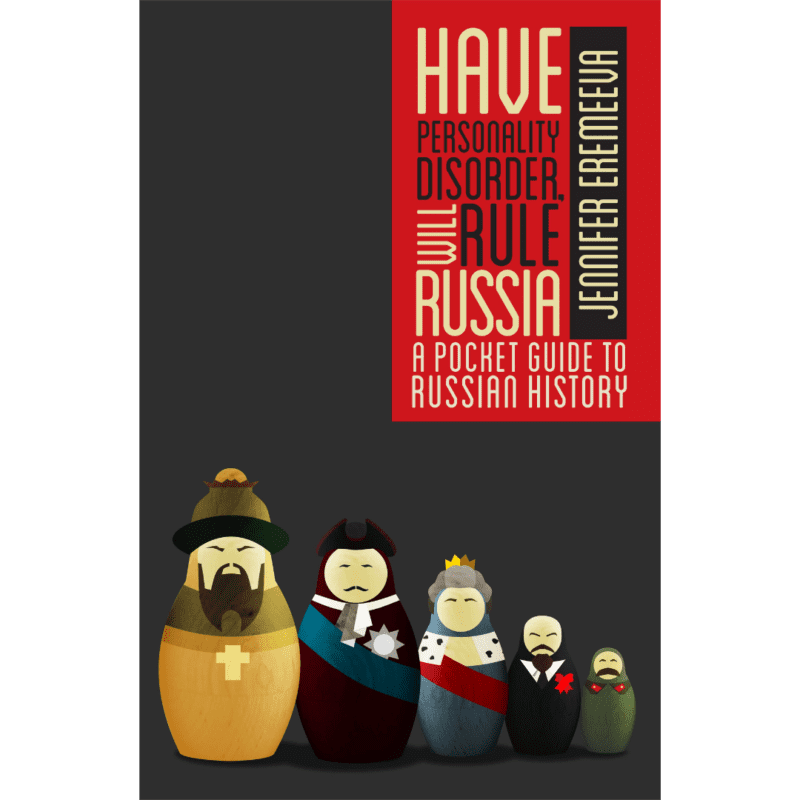A Writerly Rant.
The piece below appeared today on the BBC’s World Service website, under the “Strana Russia” section. I’ve been writing for them since last summer, and it has been my first foray into publishing in Russian. I’ve written about clutter busting in Russia, observations on carrying on a balanced conversation with Russian men, and the differences between Back To School in Russia and the US. I was very taken aback by the number of readers who voiced their outrage that a foreign writer should choose to take on the subject of Russia. Many called me uninformed, others called me rude, still more think me rude, disrespectful, and downright crazy. I wasn’t sure how to respond: it seemed unproductive (and incredibly time-consuming) to post a response to each one, but some response seemed called for, and the BBC kindly agreed to post this piece. What do you think? Are foreigners equally entitled to publish their thoughts on an adopted country? Is expat humor an insult to the host country? Please join the debate in Russian on the BBC’s Russia Service site, or below, in English.
My Charter: Relevant for Your Monastery?
Recently, a reader of this blog warned me to lay off the satire about Russia, using a Russian proverb: “Don’t take your own charter to another’s monastery.” [“Со своим уставом в чужой монастырь не ходят.”] What the reader was trying to convey was that no foreigner should never ever presume to write about Russia, and certainly never in a humorous or negative vein, even those who, like me, have racked up the numbers: 18 years living in the country, three heads of state, two coups, three financial crises, one Russian husband, four years working for Russian companies, and more than five thousand hours clocked behind the wheel of a car stuck in rush hour Moscow traffic.
It wasn’t the first time I’ve had my literary hand slapped for daring to attempt humor in Russia:
“We can’t publish this…it’s not respectful,” snarled one Russian editor in response to a lighthearted piece I wrote on the unsolicited gifts my husband and I have received over the years.
“Of course it wasn’t,” I thought to myself. “What is there to respect about a mobile phone case made out of zhel’, a Bohemian crystal vodka decanter in the shape of the Imperial crown, or an unfortunate plastic garden sculpture of ‘Happy’ from Disney’s Snow White and the Seven Dwarves?”
“This is a humor column,” I argued, “you asked for funny things that happen to me in Russia.”
“Make fun of your own kind,” she advised.
I can’t accept this, since it represents a serious threat to my livelihood: I’m a humor writer and I live in Russia, so I write about the side of Russia I think my readers, will find entertaining: surly shop-girls, the curiously Byzantine hierarchy of Russian society, and the disconnect between Cyber-age 20-somethings and the older generation’s Soviet values. Matters culinary: salad Olivier and salo, because, to the uninitiated anyway, these are intriguing, as is the quirky system of public holidays, and the unique Russian approach to health care.
Daring to Demonize the Dacha
Once I dared to take on that national Russian obsession: the dacha. I did not, in the accepted foreign tradition, couple the dacha with the concept of the Great Russian Soul. I didn’t talk about capturing the elusive unique Russian soul in a spoonful of homemade jam, or on a whiff of smoke from the kostor, because, honestly, I failed to find any of that. What I did find was mold, discomfort, and nuclear-powered mosquitoes, so I wrote about those. In response, I received a harangue from a vitriolic septuagenarian Russian journalist, writing from his own dacha, who called me “crazy,” which seemed needlessly histrionic. Where is it etched in stone that foreigners have to be over-the-moon about every aspect of Russia and Russian culture? Do I not have the right to express of Russian culture what Joseph Brodsky did of American: “some of it I find revolting, some awe-inspiring?” The airport, spitting on the street, and prime time television I find revolting in Russia. And awe-inspiring? A much longer list, which includes all the Silver Age writers, the Mighty Handful of musicians, September 1st, World War II veterans, the mysteries of the Russian Orthodox Church, KVN, Kvartet I, the incandescent brilliance of Russia’s scientists, academics, and artists, as well as the pompous gallantry of Russia’s male chauvinists, and the Wagnerian tenacity of a breed of women who force the likes of Hitler, Napoleon, and Genghis Khan to their knees.
Foreigners Need Not Apply
What I’m hearing from my Russian readers, though, is this: when it comes to crafting humor about Russia, foreigners — it seems – need not apply. Elsewhere in the world, Englishman Peter Mayle is revered in France for his humorous tales of eccentric locals in the Luberon Valley. In the West, we double over at Yakov Smirnoff’s hilarious take on life in America in his popular magazine articles and embrace émigré writers such as Lara Vypnar when she produces a pitch-perfect grilling of self-absorbed American male wannabe novelists in New York City.
The Double Standard
So is this a double standard? Am I not as fully entitled to my take on my Russia as the “Beet Generation” writers are to their America? I’m creating humor, not “contempt…and disrespect for another country, its people, and customs.” [“Презрение, цинизм, неуважение к другой стране, её народу и обычаям”] Having spent most of my adult life in Russia, it doesn’t seem like the best use of my time to, as another reader suggests, suddenly shift my focus to “hot dogs, Pepsi, and baseball,” [о хот-догах, пепси и бейсболе!!!] or the ranks of what another like-minded reader calls the “obese-minded Americans, their unkempt American women, a boring game of game of baseball or that stupid holiday, Halloween.” [“учных недалёких американцев, растрёпанных американских женщин, не следящих за своим внешним видом, скучную игру бейсбол и тупой праздник Halloween.”]
Don’t Take Your Own Charter to Someone Else’s Monastery.
~Russian saying.
“Russians in their soul cannot tolerate foreigners,” [русские на дух не переносят иностранцев] yet another Russian reader tells me. But how, I wonder, does that reader square this intolerance, with the current sense of Russia’s national entitlement to many things, which by their very nature, necessitate foreign involvement such as hosting the Olympics in Sochi? Do the trappings of global citizenship ask of Russians a new kind of tolerance to foreign commentators?
Here we have all we need for a meaningful debate: an interesting issue, passionate readers, committed writers, and a well-established forum. I invite you to join me for just such a thoughtful and considered debate. What do you think? Do you agree, as one reader observed that, “the Cold War is long over…relax? [Холодная война закончилась уже давно, расслабьтесь…].
Can the Russian soul learn to tolerate foreigners?
Does my charter have any relevance in your monastery?
This piece originally appeared on the BBC’s World Service website in Russian under the title “Об иностранцах в России и “чужом монастыре” on October 13, 2010. A link to the original piece in Russian can be found here.










I can’t imagine how difficult that must be. Trying to stifle your inner humor and happiness amidst that kind of scrutiny. Good luck!
I don’t know what I would do. I suppose I would try to be as non offensive as possible. Who knows though.
Hm. My only access to Russia, its peoples and culture is via your writing (okay, you, Tolstoy and biopics about Catherine the Great). The humour itself allows me a way in. It makes Russia lovable and accessible — even when reading about stroppy shop girls and traffic. As a life-long expat myself — Jamaican-born, American-raised, now in Britain as a dual national — I know first hand what ‘the locals’ feel about an ‘foreigner’ finding humour in their ways. It’s just hard to see yourselves through the eyes of someone else… but it is also an incredibly necessary exercise. Particularly in our incredibly shrinking and increasingly interdependent world. So — write on! Please.
Jennifer, you are a brilliant writer and a funny writer…Keep on, Keepin on!
I am in Russia and love Russia and I have a different experience and outlook as I am always looking at the bright side (and it is very bright here). But I lOVE your wit and humour about Russia, just like I love most funny comedians in this World.
How boring would my life be without satire and giggles? How boring would EVERYONE’s life be without satire and laughter?
Your writing is good for Russia because any PR is good PR for us here, especially when its comedy (not to even mention the AMAZING info you give us all about the country’s HISTORY, which really puts Russia on the map for people all over the World)
Reactions (good or bad) is also only all good for you as well. (PR!)
Write on QEB,
TL (The Lioness)
“Stupid Holiday Halloween”? How dare they? And what do they feel about “Absurdistan” written by one of their own.
Во-первых, Бродский и этот Смирнофф не были русскими 😉 . Покинув Россию, они легко порвали с прошлым, стали американцами или в случае Бродского, “гражданами мира”.
Во-вторых, попав в Америку, они изо всех сил пытались стать американцами, и это им удалось. А вы, хоть и прожили в России 18 лет, так и остались чужой. Причина в этом скорее всего в вас самой, вы смотрите на Россию и её жителей свысока, злорандо подшучиваете над их ущербностью,и у вас и в мыслях нет стать одной из них.
В третьих, ежели вы приехали погостить, не высмеивайте хозяев которые вас приютили и накормили. Пусть многое у них кажется вам смешным и нелепым. Тем более, выбалтывать это другим – “Я гостила у ***, так у них такое! Ха ха ха!”. Вот вернётесь на родину, там La Russophobe’ствуйте сколько хотите.
You’re incredibly daring, insightful and intelligent to write about such a delicate (for some, apparently) subject so don’t let anyone stifle you! You know you speak and write for all of us who have spent long periods of time in Moscow and it’s always fun and encouraging to know that others have been through similar experiences – both good and bad, often ridiculous and yet part of the slow process of world-integration (for a lack of a better term..) Thanks for humoring those of us who appreciate it!
Dear Jennifer,
You shouldn’t judge about the whole population from one comment of some person. There are people who don’t like other people’s opinions here and there, either you’re a foreigner or not.
Russians can definitely laugh at themselves and we can easily share this laughter with any member of global community. The only thing we are getting insulted of is stereotypes. EVerybody is tired of being perceived as unshaved men drinking vodka with their bear-pet.
You’re a braver woman than me, Jennifer, but keep it up, the world is usually a better place for having a mirror held up to it’s own absurdities. And always bear in mind that those who leave outraged comments are always outnumbered by those who laugh with you, and then click onto their next site of interest…
For what it’s worth, I think any adverse comment contains far more, “I didn’t find it funny” than “I’m offended”. For me, anything that gets inside my natural defenses about my own country and makes me laugh is pretty OK, no matter who says it. How much of the stuff you write about makes fun of the human condition, rather than a quality or practice that can be critically isolated to the nation? Dave Barry cracks me up, no matter what he writes about, because he establishes himself immediately as a harbourer of idiot cunning more than intellect, and disarms the reader with his everyman charm.
I intensely disliked Paul Cellucci when he was U.S. Ambassador to Canada, because I perceived many of his remarks to be critical of Canada based on a personal belief that we were a bunch of stupid hillbillies compared with the bastion of civilization that was the United States. He may not have ever thought that – probably didn’t – but he annoyed and offended me. Although he wasn’t a humorist (at all), the principle is instructive: it’s OK to joke about people as long as you make yourself part of the joke. And not the well-educated, patient sufferer of others’ idiocy, either. It doesn’t hurt to portray yourself as charmed by the foibles of the culture, rather than amused only because you’ve gone past exasperation.
I think your writing is both hilarious and harmless, but I’m not Russian. Since Russians are held up by many western sources as the poster-children for underdevelopment, corruption and deliberate dissembling (unfairly, to my mind), it’s not surprising they’d be reluctant to go along with a suggestion that they laugh at themselves from a westerner.
I’d recommend running drafts past someone who is a native Russian with a broad sense of humor, just to test the waters for potential insult (maybe your editor wasn’t totally wrong). Nearly always, there’s a way to reword it so that it’s still funny, but adjusts your own position in the scenario so that you don’t look judgmental. I’d guess from my own experience, for example, that making fun of gifts in Russia is off-limits; I gave my wife things years ago that I’m just now getting the impression she doesn’t like. You certainly have sufficient versatility that you could think of more than one way to approach a joke – you’re as funny as Dave Barry in your own way.
Русская в Америке, я обожаю Ваш блог! И этот ответ тоже!
Мне легче конечно же – я уже пережила много разных монастырей и уставов:)
У русских действительно проблема с юмором, если этот юмор о них. Как только люди перестанут чувствовать себя такими ущербными они перестанут так относиться с шуткам о себе. Продолжайте приучать мою нацию. А мы с Вами будем продолжать смеяться.
I can relate to your dilemma, but the problem surely cannot be summed up by vast generalizations like, “Russians in their soul cannot tolerate foreigners.” Some things to ponder:
1. Tone. It’s not the simple fact of writing about the absurdities, inconveniences, madness of Russia, but how you write about them. Maybe not you in particular, but I have seen people write really scathing or condescending things, and remark that they’re just joking around, and sheesh, why is everyone so sensitive? Even if you are not using the label of satire as cya (I don’t see that you are), you might take such pushback as an opportunity to see how you can work on your comedy skills, or what kind of readership you want to attract.
2. Humour. It never translates terribly well, actually. And the satire of foreigners, when aimed at our culture, usually hurts a bit more than when we make fun of ourselves. There is a sense that this is an earned right. Especially when you get into stereotyping territory.
3. Frequency. If someone sees you only writing about how silly, horrible, insane, etc. Russia is, even if you’re not trying to be malicious, it may come across as such. Like, what’s this person’s agenda? Your agenda should be understandable from your writing alone, without having to delve into your bio.
4. Context. Like it or not, you’re being read in the context of “Americans who write about Russia.” And since their track record sucks, you’re probably guilty until proven innocent in the minds of many. It isn’t fair, but it’s naive to pretend this is not a factor. And even though you have lived there so long, you are still a foreigner, not one of them. This is something that dogs all immigrants: you share their day to day experiences, but not their baggage. Oh, and you’re there by choice.
5. The kind of people who comment. Well, looking around the internets, can we say they are representative of the population? I wouldn’t. A lot of them have an axe to grind, time on their hands, etc. And I say this as someone leaving a comment.
I don’t write for the BBC or anything, in fact I have maybe 10 regular readers, but it seems my biggest fans are Russian (well, they are the ones who send mail.) And I write funny stuff about Russia too. So if I’m a little skeptical, that’s why.
I guess it is up to you to find the best balance between writing what you want to write, and catering to your audience. Even if you are correct that Russians just don’t want you writing about negatively them, you don’t really have control over their cultural sensibilities. Just how you respond to them.
Одно только присутствие в ваших блогах-друзьях ссылки на “La Russophobe”, выдает ваше истинное лицо с головой. Почему вы рекомендуете всем вашим читателям этот откровенно расистский-нацистский бложик?
Так что с вами всё понятно.
Why don’t you write a column about what Russians tell you is wrong with america–and what you think is wrong with america? as they say, turnaround is fair play. make fun of america, too. i’m sure you’ll be just as brilliant as it as you are at showing the lighter side of life in mother russia. that should satisfy the critics! but please don’t stop. you’re waaaaaaaaaaaaaaaaaaaaaaaaaaaaay too funny!!
I have a slightly different theory. Perhaps the reactions are caused not as much by the content of your writings as by the simple fact that the reader understands this american (you) knows their language well enough to understand their rants against arrogant foreigners. in other words, you function as an outlet for frustrations not caused by you. You didn,t export Helloween to Orthodox Russia by any chance did you?
On the other hand – and I haven’t read enough of you to know if you’re not already doing this – it often helps to show a bit of cultural relativism. The kind of ‘yes I know you Russians got this and that problem, but do you know that it isn’t much better over there in my home country’.
Having read one of the articles you wrote (about your husband watching soccer) in both Russian and English and some of the BCC comments, I think there are two things at play here.
First is that your article comes across differently in English and Russian. In English, it’s light-hearted and humorous and with a little bit of a snap. In Russian, it comes across as standoffish, like you’re distancing yourself from the Russians and from your husband. I know it’s not your intention, but the tone reads very differently. One comment in particular really struck me, “Там, откуда родом Дженнифер, можно встретить очень разных людей. Не уверена, что со всяким у неё получился бы интересный разговор. Точно так же и в России. Есть такая русская поговорка: скажи, кто твой друг, и я скажу, кто ты. Да Дженнифер её знает наверняка. И если вместо фразы “с русскими друзьями моего мужа этот метод не работает” написать просто “с друзьями моего мужа этот метод не работает”, то всё сразу встанет на свои места. Дело не в Массачусетсе и Москве, а в круге общения её мужа.” And that’s the point. Why not just say your husband’s friends? It would be just as funny as make fun of the Russian tradition of 45-year-olds marrying airhead 24-year-olds who file their nails just as much.
The second is that, as many commenters have noted, Russians hate it when foreigners understand Russian nuances and can comment on them, which leads to their ire. They don’t know how long you’ve been in the country (I didn’t see anything in a lede or chyron that would show that) and so think you’ve just arrived.
Even still, you are extremely brave for writing satire in Russian, in Russia. Go girl!
Thank you for coming by and your support. Your advice is very apt!
TSB – thanks for that input. The foreigner here, foreigner there, foreigner almost everywhere thing is very intereting, isn’t it? BTW, am loving your blog!
Roar Lioness, Roar!
Reactions are certainly something we can count in terms of quantity and quality on this posting: 42 responses over on the Beeb’s site. I always love when you weigh in here, TL, as your comments always do make me smile! QB
I know…
Hey Bram1066: Wow! Compared to LR! Not sure how to take that one!! I still do feel чужой and that is part of what I am exploring in this blog, and in my book. I appreciate you weighing in with your thoughts, and I hope you’ll visit again!
Seva, you will not believe this in a zillion years, but did you see the photo of the baby bear I posted on FB? That is the closest I have ever gotten to a bear, and in Northampton, not Russia!!!!
PM: I bore that in mind as I labored through the 41 (!!!) responses to the BBC post. AGHGHGHGHGHGHGHHHHHHH!
Many thanks for that BWAck: you encourage me to redouble my efforts
Mark: as every, your support makes me smile and keep going forward, but a Dave Barry comparison is the cap on my day! Thank you so much!
Marina, now where are you in the US? Thank you very much for reading and I am so pleased that you do enjoy these posts!
poemless,
as one of your 10 readers (I’m pretty sure you have more) I can say that enjoy your work a lot!
Thanks for all your bullet points, all of which are to the point and excellent advice. On the whole, doing the Russian language pieces is interesting since I mostly write in English, but it is interesting to see the responses.
I read her, though. I don’t agree with everything she says (daleko ni everything) but I find her fierce passion for what she does intriguing. Don’t you?
Excellent idea, as all your ideas are. I’ll work on that.
Joera, thank you very much for your thoughts. I didn’t import Halloween, but enjoyed scaring the neighbors with my pumpkin in the early years of living there. I like your ideas and will try to incorporate them into future pieces and posts.
Vicki: Thanks for coming by and your very interesting thoughts. I know from reading your blog that you have some of the same issues I do. You are right that the pieces in English and Russian sound very different…its interesting to explore why. I’ve been in Russia for 18 years.
I hope you’ll come again and I look forward to reading your stuff!
Your column about child raising would be a good one for the BBC so your Russian readers could see the other side. Agree that Russian children are in general much better behaved.
Don’t know if you ever stumbled across this from Pushkin, Jennifer, but it’s possibly part of what’s going on:
Я, конечно, презираю отечество мое с головы до ног — но мне досадно, если иностранец разделяет со мною это чувство.
I remember thinking years ago how interesting it is that, say, Jerry Seinfeld tells jokes about airplane food, but Zadornov tells jokes about Russian airplane food. I wonder if your commentators feel the same way about Zadornov? (Is he still working?)
Though this is my first comment, I am an ardent follower of your blog. As a new arrival expat in Moscow, I have found your blog to be informative, humorous and, while refreshingly honest, never negative about Russia or Russians. Every country and culture has its own idiosyncrasies. Sometimes it takes an outsider to identify these. I think you’ve done that objectively and with the lightness of your great sense of humour, yet always seeming to display a passion for the country, Moscow and its people. Please continue to make me laugh!
Dear Jennifer,
I just came across your blog over the summer and as 2nd gen US raised russian I really enjoy
your unique view of the motherland! Please don’t change anything, and please don’t cater or censor your work and don’t let some insecure overeducated crankypants poster intimidate you because your not a native russian!
Don’t worry, its an established russian tradition, as brilliantly stated by A. Pushkin:
“Я, конечно, презираю отечество мое с головы до ног — но мне досадно, если иностранец разделяет со мною это чувство.”
Please continue your writing, its quite enjoyable to read.
David, what a pithy mot from Pushkin! I think everyone feels this way, and what a great observation about Zadornov and Seinfeld…do any readers know Zadornov?
Annwyn: I am so glad you weighed in Annwyn, and delighted you enjoy Dividing My Time! How are you enjoying Moscow? I hope you’ll keep joining the discussion now you’ve spoken up, and thanks for the vote of confidence!
Anny: So pleased you found Dividing My Time and that you enjoy it. I’m always intrigued to hear from the 2nd generation, who I think probably more than any other group, understand the love/hate relationship one can have with two countries (any countries!) and cultures. I hope you’ll continue to weigh in with your thoughts! “Crankypants” is a magnificent expression BTW!
Thanks Teknomad for a return visit!! The Pushkin quote has cropped up a lot, and I think it is very apt. I’m so pleased you enjoy Dividing My Time! thanks for your comment and support!
Only after re-reading my comment I realized that you may think that I imply that you despise Russia! I honestly didn’t mean that. I only wanted to say that we russians love to groan and moan about every (real or perceived) shortcoming of our country, but ready to jump on every foreigner who agrees with us.
Also, I’d like you to read a blog of an american (of Iranian descent) who is married to a russian woman and lives in Moscow. He is also happens to be my collegue and a very intelligent man.
http://usa-moscow.blogspot.com/
I love reading about his impressions and discoveries; hope you will too.
Damn, I haven’t read your comment before writing my own with the same Pushkin’s quotation! Well, he was bitter, in exile in his estate, writing that letter to Vyazemsky.
Also, I am russian and I think Zadornov is a STUPID ASSHOLE. And he is still working, alas.
Hi Jennifer,
Some years ago in the lift I encountered two men carrying an elaborate TV antenna with wires all over the place. I leaned over and said in Russian… It works better if you attach it to a TV. Uncomprehending stares.
In sum, many people here have a long way to go to be able to kid like a Jersey guy. They can laugh their heads off at a comedy show, where they know it’s appropriate, but react not at all in an ad-lib situation.
So, first enjoy the humor you write… and don’t lose your voice because of a few people who worry too much about Proper, Respect, and Appropriate. Stay on course and don’t be squelched!
Rob MacDonald
I live in Japan, and there’s a thriving cottage industry of journalists doing exactly what you’re doing – pointing out the comic twists and turns in the adopted country’s culture. The Japanese actually seem to enjoy it a lot of the time – they even once had a TV program of “what’s wrong with Japan as seen by foreigners living here” but it soon gave up the idea when it degenerated into squabbles between the foreigners (usually the USA versus the Rest of the World).
Я недавно читаю этот блог, и хочу сказать, что людей без чувства юмора катастрофически много. Я проглотила вашу книгу и очень жду ее продолжения.
Есть Русское выражение:”обижаются дураки и дети”. Оно, видимо, как раз от тех, кто считает ваши статьи оскорбительными))) Российскому обществу нужно побольше инакомыслящих людей, а то опять пахнет Советским Союзом.